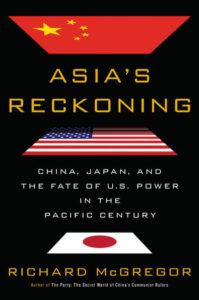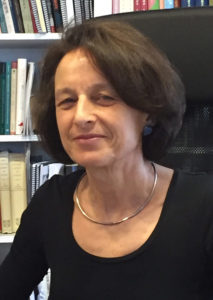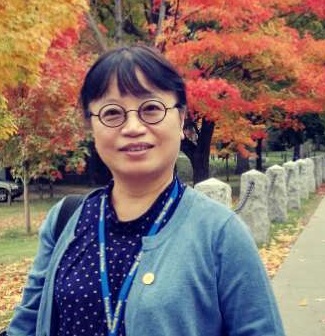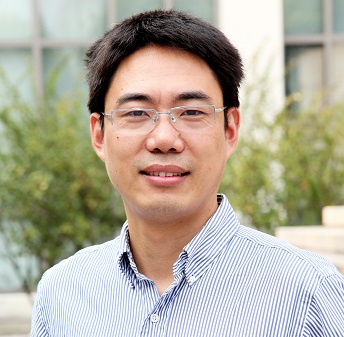Join us for an evening comprising four short lectures and a panel discussion by notable speakers followed by a drinks reception. In this event presented in partnership with the Worldwide Support for Development, we hope to show how Chinese and Japanese views of the future have had and will further have tremendous impact on the world.
The evening will be chaired by Sir Tim Lankester, former Director of SOAS and Vice-Chair of Worldwide Support for Development (WSD).
The impressive panel of four speakers each have specific knowledge of the region and the influences at play – read on, or download the programme.
PROGRAMME SUMMARY
Welcome
Professor Sir Timothy O’Shea, Principal and Vice-Chancellor, the University of Edinburgh
Engaging with China: A View from the Neighbourhood
Sir John Key GNZM, AC, Former Prime Minster of New Zealand and WSD Patron
China’s future engagement in Asia and beyond:the Belt and Road Initiative
Dr Natascha Gentz, Assistant Principal, China, the University of Edinburgh
Japan’s Changing Visions of the Future
Professor Aaron Moore, Handa Chair of Japanese-Chinese Relations
Three Tigers; One Mountain: China, Japan and the US in the Pacific Century
Richard McGregor, author and journalist
Panel discussion
Chaired by Sir Tim Lankester, Vice-Chairman, Worldwide Support for Development
Closing remarks
Professor Sir Timothy O’Shea, Principal & Vice-Chancellor, the University of Edinburgh
Reception
Speakers
Sir John Key, former PM of New Zealand and WSD Patron
Engaging with China: A View from the Neighbourhood
 Former Prime Minister of New Zealand and current Head of the Handa Foundation, Sir John will speak on the past, present and future impact of Chinese growth on political and economic relations in the Asia-Pacific region. Prime Minister of New Zealand from 2008-2016, Sir John led the country through the aftermath of the global financial crisis and a series of devastating earthquakes in New Zealand. Sir John worked in investment banking for 20 years primarily for Bankers Trust in New Zealand and Merrill Lynch in Singapore, London and Sydney where his posts included heading Merrill Lynch’s global foreign exchange business along with responsibility for European derivative trading and e-Commerce.
Former Prime Minister of New Zealand and current Head of the Handa Foundation, Sir John will speak on the past, present and future impact of Chinese growth on political and economic relations in the Asia-Pacific region. Prime Minister of New Zealand from 2008-2016, Sir John led the country through the aftermath of the global financial crisis and a series of devastating earthquakes in New Zealand. Sir John worked in investment banking for 20 years primarily for Bankers Trust in New Zealand and Merrill Lynch in Singapore, London and Sydney where his posts included heading Merrill Lynch’s global foreign exchange business along with responsibility for European derivative trading and e-Commerce.
The transformation of China in the last few decades is having a significant impact not only on its people but on the world. This is felt in particular in the region in which China is located. The Chinese Government’s commitment to rise peacefully is one which its neighbours watch with great interest. For example, New Zealand has built up a strong relationship with China and has proactively engaged with it as it transforms itself from a command economy into one which attracts more foreign direct investment than nearly everyone else. Other countries look on this development with anxiety, however, wondering what a future featuring a strong China will look like. In this lecture I shall draw upon the experience of engaging with China when I served in the government of New Zealand to share insights and lessons learnt.
Prof. Natascha Gentz, Assistant Principal, China, University of Edinburgh
China’s future engagement in Asia and beyond:the Belt and Road Initiative

Assistant Principal China and Director of the University’s Confucius Institute for Scotland, Prof Gentz will expand on the above theme by discussing China’s new massive Belt and Road Initiative (BRI) and its implications for our future engagement with China. Natascha joined the University in 2006 as Chair of Chinese and as the founding Director of the Confucius Institute for Scotland. In 2008 she was appointed Dean International China becoming Assistant Principal China in 2015. She received her MA and PhD from Heidelberg with residences at Fudan University, Shanghai; People’s University, Beijing; and Tokyo University. A Fellow of the Royal Society of Edinburgh and Honorary Fellow of the 48 Club, she is an executive board member of a number of China focused organisations.
Prof. Aaron William Moore, Handa Chair of Japanese Chinese Relations
Japan’s Changing Visions of the Future
 Aaron Moore will introduce the history of changing Japanese visions of the future, from its emergence as a rapidly modernizing nation in the nineteenth century to WWII, and its post-war embrace of peaceful technological innovations such as robotics and bullet trains. American-born Aaron Moore was appointed to the post of Handa Chair in September 2017. Before coming to the University of Edinburgh, he held the post of Senior Lecturer in Japanese and East Asian History in the University of Manchester. Prior to taking up his post at Manchester, Prof Moore worked at Princeton, the University of Virginia, and Oxford University.
Aaron Moore will introduce the history of changing Japanese visions of the future, from its emergence as a rapidly modernizing nation in the nineteenth century to WWII, and its post-war embrace of peaceful technological innovations such as robotics and bullet trains. American-born Aaron Moore was appointed to the post of Handa Chair in September 2017. Before coming to the University of Edinburgh, he held the post of Senior Lecturer in Japanese and East Asian History in the University of Manchester. Prior to taking up his post at Manchester, Prof Moore worked at Princeton, the University of Virginia, and Oxford University.
Richard McGregor, journalist, author and writer
Three Tigers; One Mountain: China, Japan and the US in the Pacific Century
 Richard McGregor is a journalist and an author with extensive experience in reporting from east Asia and Washington as former Washington and Beijing Bureau Chief for The Financial Times. A 2015 fellow at the Woodrow Wilson International Center for Scholars in Washington, D.C., his latest book, published by Penguin Random House is entitled Asia’s Reckoning: China, Japan and the Fate of U.S. Power in the Pacific Region.
Richard McGregor is a journalist and an author with extensive experience in reporting from east Asia and Washington as former Washington and Beijing Bureau Chief for The Financial Times. A 2015 fellow at the Woodrow Wilson International Center for Scholars in Washington, D.C., his latest book, published by Penguin Random House is entitled Asia’s Reckoning: China, Japan and the Fate of U.S. Power in the Pacific Region.
“shrewd and knowing” – Wall Street Journal
“a compelling and impressive read” -The Economist
“skillfully crafted and well-argued” – Financial Times
” excellent modern history book” – South China Morning Post
CHAIR FOR THE EVENING
Sir Tim Lankester held senior position in the British Treasury, was Britain’s representative on boards of the IMF, World Bank and the European Investment Bank and served as Permament Secretary in Britain’s international aid and education ministries. Earlier he served as Private Secretary (Economic Affairs) to Prime Ministers Callaghan and Thatcher.
1996-2001 Director of the School of Oriental and African Studies, Universty of London
2001-2009 President of Corpus Christi College, Oxford.
2007-2015 Chairman of governing body of London School of Hygiene and Tropical Medicine
In 2012 his book on British aid to Malaysia ‘The Politics and Economics of Britain’s Foreign Aid: the Peruga Dam Affair’ was published by Routledge. He is currently South East Asia adviser to the consulting firm, Oxford Analytica, and Vice Chair of Worldwide Support for Development, the charity founded by Dr Haruhisa Handa
More info On WSD & Founder DR Haruhisa HandA
WSD aims to help create a world where people – no matter where they live – can be safe and happy and enjoy economically, socially and culturally high standards of living. WSD works to facilitate international cooperation and support in social welfare and education, as well as academia.
Dr Haruhisa Handa is recognised for his commitment to improving the lives of disadvantaged people around the world. His philanthropic and humanitarian work has included the founding of a free emergency hospital in Cambodia. He is Honorary Chairman of the Japanese Blind Golf Association, Honorary Patron of the World Blind Golf Association and Vice-president of the UK’s Royal National Institute of Blind People.
Dr Handa has an economics degree from Doshisha University in Kyoto and a Masters degree in creative arts from Edith Cowan University, a PhD in Literature from Tsinghua University and a PhD in literature from Zhejiang University.
In 2010, Dr Handa’s established the Handa Chair of Japanese Chinese Relations at the University of Edinburgh. In 2016 Dr Handa received the degree of Doctor Honoris Causa from the University of Edinburgh in recognition of his support for education, health, the arts and sport
This event will take place on Friday 20th October from 6pm-8pm in the John McIntyre Conference Centre, Pollock Halls, 18 Holyrood Park Road, EH16 5AY. The evening will conclude with a drinks reception.
 Smog art, which refers to artwork that engages with the issue of severe ambient air pollution, has become increasingly common in China. It includes various art forms such as paintings, photography, and performance art.
Smog art, which refers to artwork that engages with the issue of severe ambient air pollution, has become increasingly common in China. It includes various art forms such as paintings, photography, and performance art.


 It searches for the Chinese common reader in three distinct places: in the materiality of cheaply produced texts-books as objects; in the usable-and wondrous-information packaged in their crowded pages—texts as meaning; and in the spaces where this knowledge was consumed—reading as cultural practice. The texts include cheap, string-bound, lithographed books such as wanbao quanshu 萬寶全書 (comprehensive compendia of myriad treasures), together with daily-use, letter-writing, household, and health manuals. Their contents include age-old cosmologies and fanciful representations of foreigners, together with treatments for opium addiction, methods for preventing cholera, and ways to graft a plant. The apprentices, workers, housewives, and lower-level bureaucrats who consumed this knowledge often did so on the fly, in the streets. Sitting, standing or leaning at street-side bookstalls, they avidly sought both the useful information and the marvelous diversion necessary to negotiate the epistemological uncertainty—and promise—of China’s revolutionary twentieth century.
It searches for the Chinese common reader in three distinct places: in the materiality of cheaply produced texts-books as objects; in the usable-and wondrous-information packaged in their crowded pages—texts as meaning; and in the spaces where this knowledge was consumed—reading as cultural practice. The texts include cheap, string-bound, lithographed books such as wanbao quanshu 萬寶全書 (comprehensive compendia of myriad treasures), together with daily-use, letter-writing, household, and health manuals. Their contents include age-old cosmologies and fanciful representations of foreigners, together with treatments for opium addiction, methods for preventing cholera, and ways to graft a plant. The apprentices, workers, housewives, and lower-level bureaucrats who consumed this knowledge often did so on the fly, in the streets. Sitting, standing or leaning at street-side bookstalls, they avidly sought both the useful information and the marvelous diversion necessary to negotiate the epistemological uncertainty—and promise—of China’s revolutionary twentieth century. Joan Judge is Professor in the Department of History at York University in Toronto, Canada. She is the author of Republican Lens: Gender, Visuality, and Experience in the Early Chinese Periodical Press (2015), The Precious Raft of History: The Past, the West, and the Woman Question in China (2008), Print and Politics: ‘Shibao’ and the Culture of Reform in Late Qing China (1996), and co-editor of Women and the Periodical Press in China’s Global Twentieth Century: A Space of Their Own? (forthcoming), and Beyond Exemplar Tales: Women’s Biography in Chinese History (2011). She is currently engaged in a project with the working title “In Search of the Chinese Common Reader: Usable Knowledge and Wondrous Ignorance in the Age of Global Science, 1870-1955″.
Joan Judge is Professor in the Department of History at York University in Toronto, Canada. She is the author of Republican Lens: Gender, Visuality, and Experience in the Early Chinese Periodical Press (2015), The Precious Raft of History: The Past, the West, and the Woman Question in China (2008), Print and Politics: ‘Shibao’ and the Culture of Reform in Late Qing China (1996), and co-editor of Women and the Periodical Press in China’s Global Twentieth Century: A Space of Their Own? (forthcoming), and Beyond Exemplar Tales: Women’s Biography in Chinese History (2011). She is currently engaged in a project with the working title “In Search of the Chinese Common Reader: Usable Knowledge and Wondrous Ignorance in the Age of Global Science, 1870-1955″. FAN Lizhu 范丽珠 is Professor of Sociology at Fudan University. Director of Globalization and Religious Studies. As a pioneer scholar on the study of sociology of religion in China, she has engaged in historical and ethnographic studies of Chinese folk religious beliefs, sociological theories of religion, and the study of the trends of folk religious beliefs in modern Chinese society. Her most significant works include The Religion and Faith Transition of Chinese in the Contemporary Era: Field Research of the Adherents of Folk Religion in Shenzhen; China and the Cultural Sociology of Religion (co-authored with James Whitehead and Evelyn Whitehead); Sociology of Religion: Religion and China (co-authored with James Whitehead and Evelyn Whitehead). Academic articles include “Conversion and Indigenous Religions in China” (Co-authored with CHEN Na) in the Oxford Handbook of Religious Conversion; “The Cult of Silkworm Mother as a Core of Local Community Religion in a North China Village” in China Quarterly, etc.. As an internationally recognized scholar, she taught at many distinguished universities, such as University of Chicago, University of California at San Diego, Lund University, Queen’s University, New School, Wabash College, University of British Columbia, Bergen University, University of Stockholm, University of Tokyo, etc.
FAN Lizhu 范丽珠 is Professor of Sociology at Fudan University. Director of Globalization and Religious Studies. As a pioneer scholar on the study of sociology of religion in China, she has engaged in historical and ethnographic studies of Chinese folk religious beliefs, sociological theories of religion, and the study of the trends of folk religious beliefs in modern Chinese society. Her most significant works include The Religion and Faith Transition of Chinese in the Contemporary Era: Field Research of the Adherents of Folk Religion in Shenzhen; China and the Cultural Sociology of Religion (co-authored with James Whitehead and Evelyn Whitehead); Sociology of Religion: Religion and China (co-authored with James Whitehead and Evelyn Whitehead). Academic articles include “Conversion and Indigenous Religions in China” (Co-authored with CHEN Na) in the Oxford Handbook of Religious Conversion; “The Cult of Silkworm Mother as a Core of Local Community Religion in a North China Village” in China Quarterly, etc.. As an internationally recognized scholar, she taught at many distinguished universities, such as University of Chicago, University of California at San Diego, Lund University, Queen’s University, New School, Wabash College, University of British Columbia, Bergen University, University of Stockholm, University of Tokyo, etc. LI Zhiqing is Assistant Professor of Economics, School of Economics, Fudan University. His research interests are: Environmental & Energy Economics; Public Economics; Political Economics; Economics of Climate Change; International Climate Policy; China’s Modern Economy
LI Zhiqing is Assistant Professor of Economics, School of Economics, Fudan University. His research interests are: Environmental & Energy Economics; Public Economics; Political Economics; Economics of Climate Change; International Climate Policy; China’s Modern Economy Former Prime Minister of New Zealand and current Head of the Handa Foundation, Sir John will speak on the past, present and future impact of Chinese growth on political and economic relations in the Asia-Pacific region. Prime Minister of New Zealand from 2008-2016, Sir John led the country through the aftermath of the global financial crisis and a series of devastating earthquakes in New Zealand. Sir John worked in investment banking for 20 years primarily for Bankers Trust in New Zealand and Merrill Lynch in Singapore, London and Sydney where his posts included heading Merrill Lynch’s global foreign exchange business along with responsibility for European derivative trading and e-Commerce.
Former Prime Minister of New Zealand and current Head of the Handa Foundation, Sir John will speak on the past, present and future impact of Chinese growth on political and economic relations in the Asia-Pacific region. Prime Minister of New Zealand from 2008-2016, Sir John led the country through the aftermath of the global financial crisis and a series of devastating earthquakes in New Zealand. Sir John worked in investment banking for 20 years primarily for Bankers Trust in New Zealand and Merrill Lynch in Singapore, London and Sydney where his posts included heading Merrill Lynch’s global foreign exchange business along with responsibility for European derivative trading and e-Commerce.
 Aaron Moore will introduce the history of changing Japanese visions of the future, from its emergence as a rapidly modernizing nation in the nineteenth century to WWII, and its post-war embrace of peaceful technological innovations such as robotics and bullet trains. American-born Aaron Moore was appointed to the post of Handa Chair in September 2017. Before coming to the University of Edinburgh, he held the post of Senior Lecturer in Japanese and East Asian History in the University of Manchester. Prior to taking up his post at Manchester, Prof Moore worked at Princeton, the University of Virginia, and Oxford University.
Aaron Moore will introduce the history of changing Japanese visions of the future, from its emergence as a rapidly modernizing nation in the nineteenth century to WWII, and its post-war embrace of peaceful technological innovations such as robotics and bullet trains. American-born Aaron Moore was appointed to the post of Handa Chair in September 2017. Before coming to the University of Edinburgh, he held the post of Senior Lecturer in Japanese and East Asian History in the University of Manchester. Prior to taking up his post at Manchester, Prof Moore worked at Princeton, the University of Virginia, and Oxford University. Richard McGregor is a journalist and an author with extensive experience in reporting from east Asia and Washington as former Washington and Beijing Bureau Chief for The Financial Times. A 2015 fellow at the Woodrow Wilson International Center for Scholars in Washington, D.C., his latest book, published by Penguin Random House is entitled Asia’s Reckoning: China, Japan and the Fate of U.S. Power in the Pacific Region.
Richard McGregor is a journalist and an author with extensive experience in reporting from east Asia and Washington as former Washington and Beijing Bureau Chief for The Financial Times. A 2015 fellow at the Woodrow Wilson International Center for Scholars in Washington, D.C., his latest book, published by Penguin Random House is entitled Asia’s Reckoning: China, Japan and the Fate of U.S. Power in the Pacific Region.